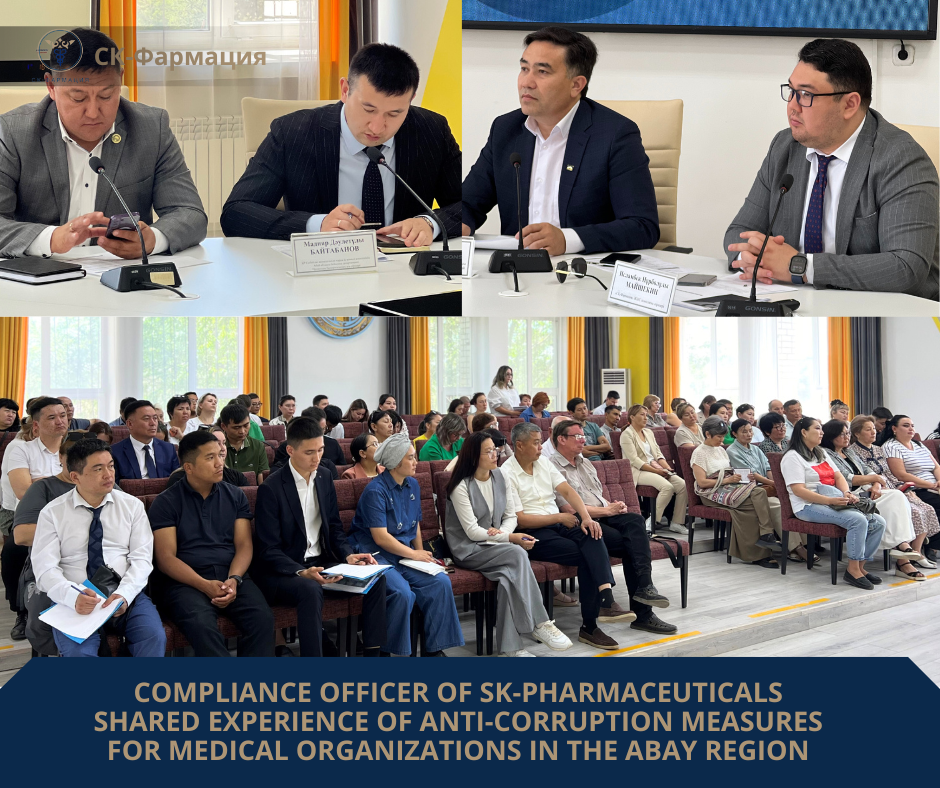
The Department of the Anti-Corruption Service in the Abay region organized a training seminar, which was attended by compliance officers of medical institutions, colleges, as well as utility companies of city and district akimats of the region.
The seminar for representatives of anti-corruption compliance services of the quasi-public sector of the Abay region was attended by representatives of 35 healthcare organizations, including medical institutions, colleges, as well as utility companies of city and district akimats of the region.
Opening the event, the moderator, head of the regional branch of the RPO "Center for Assistance to the President's Anti-Corruption Policy" Serik Baygaliev emphasized that recently significant steps have been taken in the quasi-public sector to combat corruption, one of which is the introduction of the institution of anti-corruption compliance.
At the invitation of the Anti-Corruption Service, the compliance officer of SK-Pharmacy LLP Islambek Maishekin also took part in the seminar as a speaker, who shared the experience of anti-corruption measures taken at SK-Pharmaceuticals LLP with entities of the quasi-public sector of the Abay region.
He explained in detail the modern anti-corruption measures implemented in the work of the Single Distributor, which allow the company to achieve a high level of transparency and openness of processes.
“First and foremost, a compliance officer is an advocate. Defender of the organization from corruption and image risks. He should also become someone to whom any employee can turn without fear of consequences,” said Islambek Mayshekin, adding that such a trusting attitude is achieved by the integrity of the compliance officer himself and as a result of constantly carried out awareness-raising work.
Serikzhan Narimanov, head of the regional department of the Agency of the Republic of Kazakhstan for Civil Service Affairs, also spoke at the seminar, who informed the audience about the policy of identifying and resolving conflicts of interest in the organization.
At the same time, representatives of healthcare organizations in the Abay region took an active part in the discussion of issues raised at the seminar